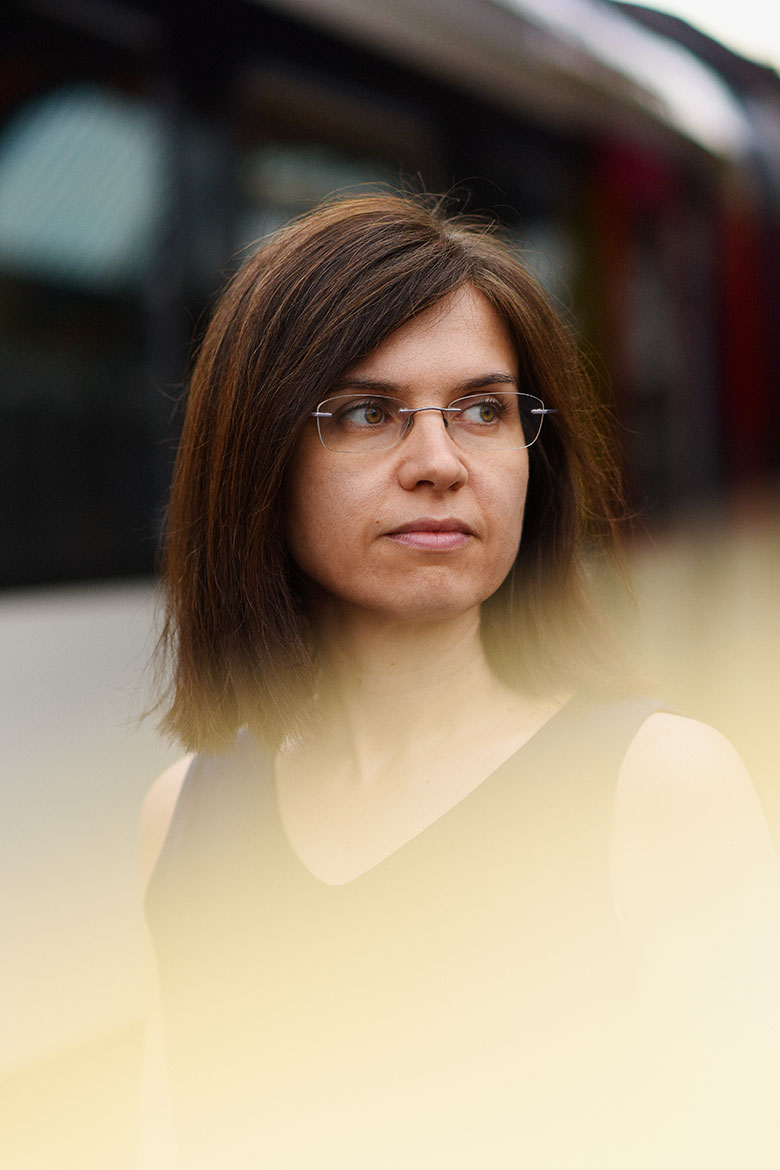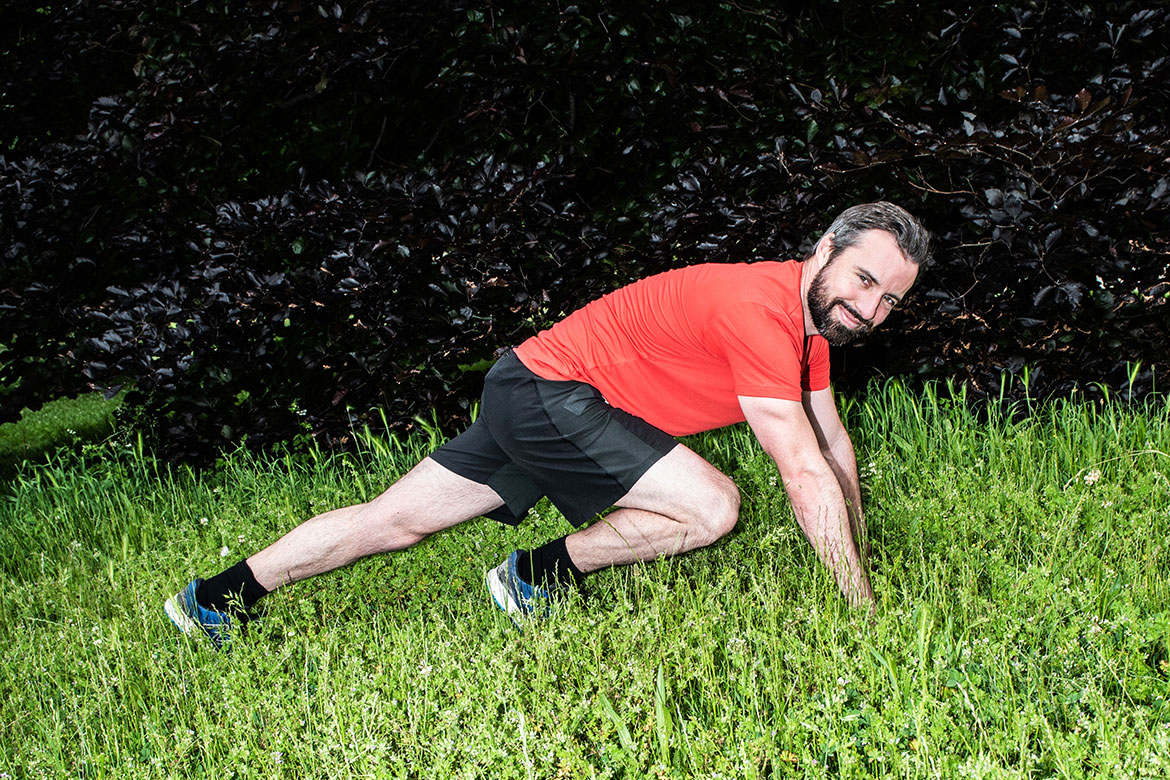Portrait
The sedentary nomadic migration specialist
The sociologist Oana Ciobanu studies elderly migrants. She came from Romania and settled in Geneva after an academic career in the four corners of Europe, and she claims to be a migrant herself.

In order to integrate quickly, the sociologist Oana Ciobanu has practised the dance-like martial art ‘Capoeira’ wherever she’s lived. That way, she soon gets to know new people. | Photo: Mathilda Olmi
She may have climbed the academic ladder quickly, but the Romanian Oana Ciobanu is adamant that she is a migrant, full stop. Not a “highly skilled mobile worker”, as she has sometimes heard. “‘Migrant’ is not negative”, she says.
Ciobanu is a sociologist who has just been appointed professor at the University of Social Work and Health in Lausanne (HETSL), and she knows exactly what this term means. She has been studying migration for almost 20 years. “With a group of students from the University of Bucharest, we wanted to conduct fieldwork”, she says in her lilting accent. “So our professor, Dumitru Sandu, took us to two Romanian villages to study, among other things, the impact of migration on community development”.
Initiatory moment
It was a memorable experience. “We were staying above a petrol station and going door to door”, she recalls. Looking back, she sees this first fieldwork as an “initiation”. “I loved the interaction with the interviewees. Dumitru Sandu taught us how to minimise our impact on the conversation, it was extraordinarily formative”. She was very organised and had prepared several pages of notes for the interview. However, she easily detached herself from them to focus on the person in front of her.
Thereafter, still a student from Constanṭa on the Black Sea, she would not let go of the theme of migration. “I don’t know why I’m so interested in it”, she says. “I got out once and soon came back”. Whether by chance or fate, once she had obtained her Bachelor’s degree, she became a migrant herself. Her studies led her to go further and further west. First to Budapest, then to Hamburg, Edinburgh, Geneva and Lisbon. “Every year, in autumn, I migrated”, she says with amusement.
Like her subjects, this nomadic researcher has been developing her own strategies for integration. Her weapon of choice has become Capoeira, which she discovered during her PhD in Germany. “It’s an activity that takes up a lot of time, with several training sessions a week and evenings at the weekend, so you quickly form close ties”, she says. “It’s both a dance and a fight that requires a lot of concentration, and I loved integrating through that”.
The great diversity of elderly migrants
In Lisbon, at the western end of her wanderings, Ciobanu and the professor Margarida Marques discovered a little-explored niche: elderly migrants. “We realised that the word ‘migrant’ often evoked a young man who had come to work”, she says. “But these people were going to get older. It was an emerging phenomenon to which very little literature was devoted”. The sociologist, who likes to think of herself as a “chain-link”, then launched a network of scientists on this subject. It now has members throughout Europe, and in Canada, Australia and Ecuador.
The topic is very dense. “Older migrants form an extremely heterogeneous group”, says Ciobanu. “It includes Turks who came to work in Germany and grew old there, English people who retired to Spain, elderly refugees who fled the war, and Eastern Europeans who migrated after being made redundant in mid-career”.
Since her arrival in Geneva, Ciobanu has been studying the relationship between the country of origin and the country of destination of elderly Romanians living in Switzerland. She has also examined the support – institutional or otherwise – provided to elderly migrants, especially Italians and Germans who arrived in Switzerland following the Second World War and later. She presented the results of this research to the local authorities. “A municipality that was developing a strategy to combat loneliness among the elderly also contacted us”, she says.
Innovative approach
His latest study in the pipeline includes Italian migrants from southern Italy who have migrated either to Switzerland or within Italy. “Migration studies don’t normally focus on internal migration, but why should there be a difference between a migrant from Sicily who moves to Milan, and a similar migrant who moves to Lugano? It’s time to rethink certain concepts”, she says before discussing her love of field interviews. “I find it very enriching to listen to people’s stories. It is often at this point that I can make links with literature”, she says.
While Ciobanu admits that one part of her research is rather theoretical, she stresses that the part that deals with the loneliness of the elderly in particular has more practical applications. This connection to practice should increase with her new position at HETSL. Ciobanu is keen to lead a project to combat ageism – age discrimination – and sees this as a good thing. She currently intends to “design research themes with actors in the field”, whether they are social workers or elderly people.
Bittersweet settlement
Apart from commuting on the Geneva-Lausanne line, Ciobanu’s nomadic life seems to be over. She confides that she experienced “a moment of joy” when she received her voting material in Geneva, but that she also felt “almost a moment of panic” at the idea of staying in one place for so long. “As you get older, you need roots”, she says philosophically. “And then my life became more complex”. She married an Italian automation engineer with whom she is raising two girls aged three and six. “Although I’m sedentary, I can remain creative, mobile and dynamic thanks to my research”.
Which elderly migrant will she be? “Given my husband’s background, it would be nice to spend our retirement in Rome or Florence”. Her expertise, however, leads her to some very pragmatic thoughts. “We will need a hospital nearby. I also know that with age, relationships in the place of origin deteriorate, so that some returning migrants have to start all over again”, she says. “In Geneva we have a life. Sometimes my husband and I joke that we will go to an EMS in the Pâquis district, where we met!”.




